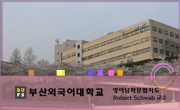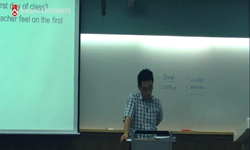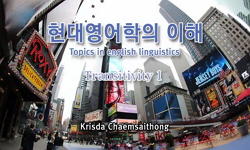This thesis examines how Yi Toegye was represented in the process of resummoning the discourses of ‘a state based on Morality-Righteousness’ (道義國家) and ‘Morality-Righteousness of People’ in Korea and Japan both before and after liberat...
http://chineseinput.net/에서 pinyin(병음)방식으로 중국어를 변환할 수 있습니다.
변환된 중국어를 복사하여 사용하시면 됩니다.
- 中文 을 입력하시려면 zhongwen을 입력하시고 space를누르시면됩니다.
- 北京 을 입력하시려면 beijing을 입력하시고 space를 누르시면 됩니다.
Recreation of the Discourse of Morality-Righteousness (道義) and the Representation of Yi Toegye in the Post-1945 Context of Korea and Japan
한글로보기https://www.riss.kr/link?id=A108198136
- 저자
- 발행기관
- 학술지명
- 권호사항
-
발행연도
2022
-
작성언어
-
- 주제어
-
KDC
100
-
자료형태
학술저널
-
수록면
7-34(28쪽)
- 제공처
-
0
상세조회 -
0
다운로드
부가정보
다국어 초록 (Multilingual Abstract)
This thesis examines how Yi Toegye was represented in the process of resummoning the discourses of ‘a state based on Morality-Righteousness’ (道義國家) and ‘Morality-Righteousness of People’ in Korea and Japan both before and after liberation focusing the discussion of Yi Toegye in both nations before and after the ruling period of Park Chung-hee (1963-1979). In other words, this means the study of Yi Toegye before and after liberation not focused on the historical and academic research, but rather on what the discussion of Yi Toegye was talking about in this period. At the same time, I would like to think about what the current voices trying to achieve ‘Korea-Japan friendship’ and ‘East Asia peace’ through the ‘cultural icon’ of ‘Yi Toegye’ between Korea and Japan have deceived and concealed.
In conclusion, the main background of the driving force that promoted Yi Toegye researches in both Korea and Japan post-liberation/war were the discourse of ‘Morality-Righteousness’. For ‘Yi Toegye', by awarding the image of “Our model educator” (in Park Jong-hong) in Korea and “The Founder and Builder of the Moral Philosophy” (in Abe Yoshio) in Japan, both Korea and Japan have added momentum to the transmission and spread of the discourse of ‘Morality-Righteousness’. Even today, modern discourse of (the acceptance of) Yi Toegye is spoken as an example that symbolizes ‘symbiosis’ between the two countries in the ‘History of Korea-Japan Cultural Exchange’. Yi Toegye has been fulfilling his role in reconstructing the history of Confucian scholars ‘exchange’ from the three countries in East Asia in the pre-modern era as a history of mutual exchange centered on the nation-state called ‘Korea-Japan Cultural Exchange History’, and at the same time assuring the establishment of ‘the History of Korea-Japan Confucian Studies’. This phenomenon is an obstacle to approach the historical originality of ‘mentality’ and ‘exchange’ of Confucian scholars in the Joseon Be careful of mixing McCune-Reischauer Romanization and Revised Romanization (2000). Dynasty and Edo period. apart from the ‘nation-states’ of ‘Korea’ and ‘Japan’. The dismantling of this ‘completed image of Yi Toegye’ and its practices may be a task that needs to be deeply reflected as a ‘past to be liquidated’ at the present time, the 77th anniversary of liberation from the Japanese Empire. no matter how difficult the task is.
목차 (Table of Contents)
- 1. The discourse of “Morality-Righteousness of People” (國民道義) and Yi Toegye (李退渓)
- 2. The discourse of ‘Morality-Righteousness’ and the representation of Yi Toegye during the Park Chung-hee regime
- 3. Discourse on ‘Morality-Righteousness’ and 'a state based on Morality-Righteousness’ and the studies on Yi Toegye in post-war Japan
- 4. The discourse of ‘Morality-Righteousness’ and beyond the ‘completed image of Yi Toegye’
- 1. The discourse of “Morality-Righteousness of People” (國民道義) and Yi Toegye (李退渓)
- 2. The discourse of ‘Morality-Righteousness’ and the representation of Yi Toegye during the Park Chung-hee regime
- 3. Discourse on ‘Morality-Righteousness’ and 'a state based on Morality-Righteousness’ and the studies on Yi Toegye in post-war Japan
- 4. The discourse of ‘Morality-Righteousness’ and beyond the ‘completed image of Yi Toegye’
동일학술지(권/호) 다른 논문
-
- 영남퇴계학연구원
- Jia Zhenzhen
- 2022
-
- 영남퇴계학연구원
- Jia Guangzuo
- 2022
-
A Collection of Toegye Yi Hwang’s Words and Deeds. Series No. 6
- 영남퇴계학연구원
- Yeongnam Institute for Toegye Studies
- 2022




 스콜라
스콜라






